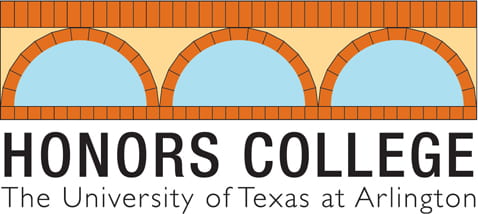Written by Tabitha Redder
While some fear statistics and number crunching, former Honors College student Megan Meier welcomes it.
Meier graduated in 2010 with a Bachelor’s of Arts in Anthropology, then she continued her studies to receive a Master’s of Science in Criminal Justice at Texas State University in 2013. As a graduate student, she worked as a teaching assistant for several statistics classes.
She said her time at the Honors College truly prepared her for graduate school and ultimately, her current career as a crime analyst in DFW.
“I work for a police department where we get reports every day. We get calls and logs of what’s going on,” she said of her current position. “I add them into a system, and we can do everything from forecasting crime patterns or finding out what areas in the city are hotspots for crime.”
When she inserts qualitative data into a system, it categorizes the crime and can reveal helpful information.
“It tells you what the crime is, and we can classify that as mild, moderate, severe, and we can actually plot that on a map near an address or GPS coordinates,” Meier said.
She said one can continue compiling crime data until a pattern or discrepancy is noticed.
“In criminal justice, you find out, you know, that five percent of street addresses make up a majority of the problems we have in a city,” she said.
She said she enjoys the math element of her position the most.
“I like looking at data. I like looking at numbers,” she said. “Whenever we get to do crime reports and say, ‘Crime went up, crime went down, here’s a forecast for what we’re expecting next, if we continue on this trend…’ that’s the fun part. Getting to look at numbers. I like patterns.”
As an undergraduate, the research requirements to fulfill the Honors degree seemed promising to her.
“I went to one of the open houses, and they said I’d get to do research and go above and beyond what you’d do in normal classes,” she said.
She knew this would prepare her for research in graduate school.
“Research methods is the best thing. You use a lot of it in graduate school, which I liked,” Meier said. “You’re doing research for your thesis or dissertation for your masters or PhD.”
Her anthropology classes in particular proved to be beneficial beyond her work as an undergraduate.
“There was a lot of discourse in anthropology. We would sit around the table and discuss things, which helped me a lot in graduate school,” she said. “It’s like all the classes now are discussion. There may be some lecture [in graduate school], like the math courses had lecture, but it was mostly reading, discussing, adding to the conversation.”
She also praised the skills she learned enrolling in more rigorous coursework to fulfill Honors requirements, including time management.
“The Honors College made graduate school pretty easy, honestly. You learn time management because you’re kind of in a crunch” she said of completing additional coursework for Honors credit.
Many Honors students receive the bulk of their Honors credits via contracting. They set up a contract in advance to fulfill Honors credit for a non-Honors course. This can include an extra project or an extra presentation, among other methods. Usually, they work closely with their professor throughout the semester to ensure they receive credit.
“I loved my time at the Honors College. I liked getting to go make Honors Contracts,” she said. “You didn’t just rely on what the honors college already provided, you could go in and add things to courses you wanted to take. I enjoyed doing that.”
Meier shared that the Honors College offered her more than just academics.
“I’m actually still best friends with two people from the Honors College. One is traveling, the other is settled in DFW, too,” she said. “We were all three in anthropology.”
As for current Honors students, she urged them to avoid fixating on perfection in their studies.
“I think the Honors College kids are kind of perfectionistic and like to study,” she said. “They should probably be patient with themselves. Even if you think you’re not getting where you should be and when you should be there.”
Meier relates her advice to her feelings as a student.
“I don’t think I enjoyed graduate school and got the most out of it,” she said. “I really wanted to get to work. I wanted to do that as quickly as possible. Sometimes research for your Master’s takes a bit longer than you think, and it puts you off 6 months to a year. It’s like, adjusting your expectations of yourself within graduate school or your career; Either could throw you a curveball.”
She added that it’s wise to approach studies and the future with a realistic mentality.
“You need to adjust your expectations of being at the very top because sometimes that doesn’t happen. [Students] can beat themselves up about it, and I don’t think they should do that,” she said. “I think they should be happy that they’ve made it this far in the Honors College. That’s more than a lot of students do at UTA. Every now and then you can take a break. If you do badly on an exam, it’s not the end of the world.”

